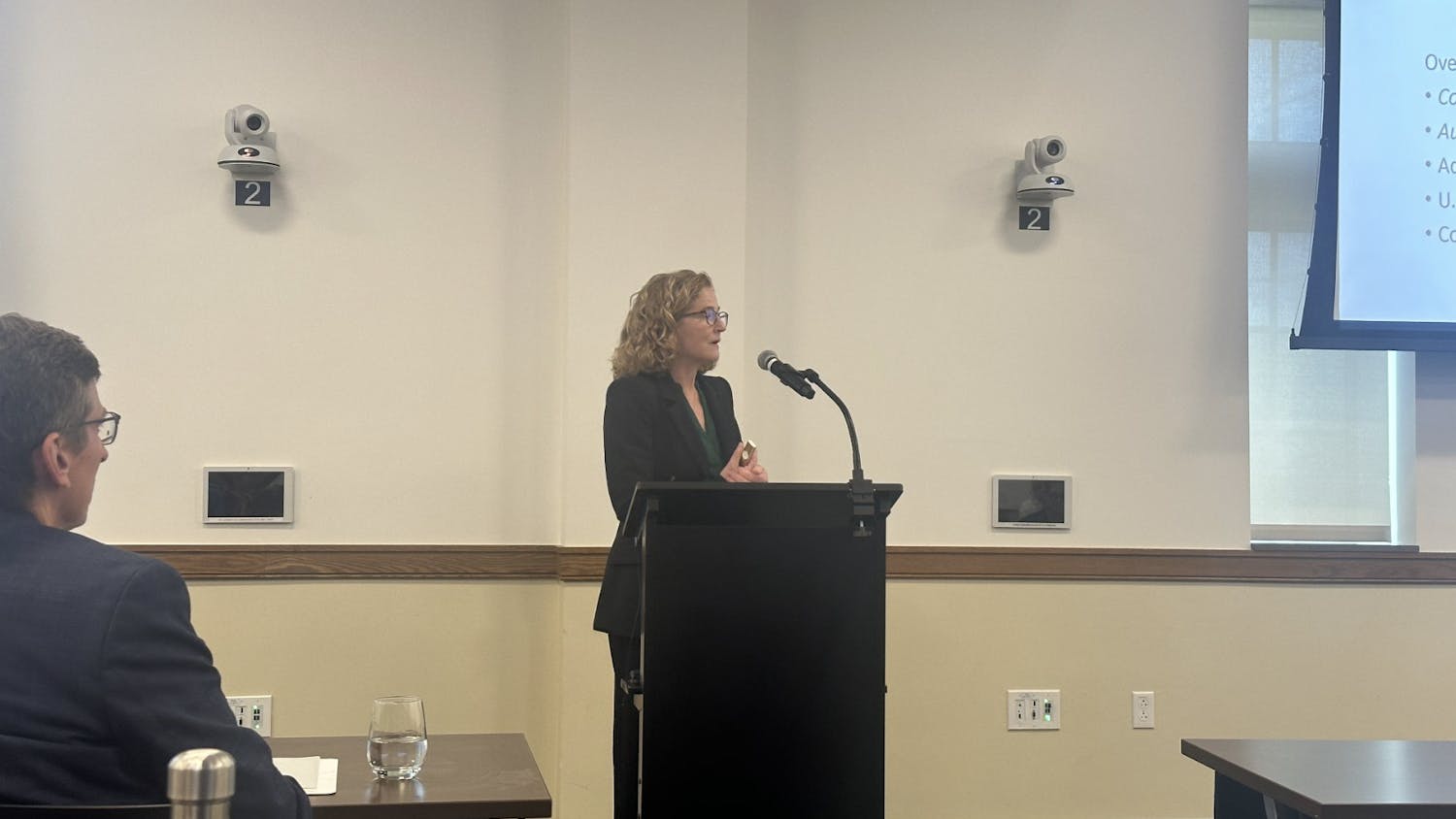Saint Mary’s students, faculty and staff gathered in Carroll Auditorium on Monday to hear Pakistani entrepreneur and social organizer Shiza Shahid share her life’s trajectory towards her position as the co-founder and Global Ambassador of the Malala Fund. Shahid was the closing keynote speaker for the College’s 10th annual Diverse Student Leadership Conference (DSLC).
Despite Shahid’s strong family structure, she “knew all around [her] that things were broken.”
Shahid said she sought answers as terrorism and radicalization grew during her post-9/11 childhood, lived under military dictatorship in Pakistan.
“Things like suicide attacks, terrorist attacks were becoming commonplace,” Shahid said. “I needed to understand what was happening to my society, so I decided to understand it through the lens of women and girls who lived the issues that I only saw from afar.”
Shahid said she began to take up roles that would allow her to help the very women she sought to learn from.
“When I was 13, I began volunteering in a women’s prison,” Shahid said. “In the prison, there were not any real female doctors, so I offered to set up medical counsel along with a local NGO [non-governmental organization]. I would spend time with women who were in deeply vulnerable positions.”
Shahid said observing these women, and their incarcerations’ effects on their families, was tragic, particularly for their children.
“Children at the site were born while their mothers were in captivity,” Shahid said. “I understood what it meant then to be discarded before you were born for those who were born behind bars and then raised behind bars along side their mothers.”
Her role as a grassroots organizer would be something she would practice repeatedly throughout her lifetime.
Shahid said when she was 16, her best friend died in an earthquake because the building he was in was built with faulty materials. Shahid said she was the only regular female volunteer at the local relief center, which meant all the women and girls with medical problems came to her.
“I remember taking a [Pakistani woman to a doctor because her] breast milk froze inside her from the cold,” Shahid said. “I would spend the day talking to young girl in hot tents knowing we couldn’t go outside because their mothers and fathers did not want them to be seen.”
She said the gender dynamics of the relief center informed her of a reality she had not witness before.
“I understood then what it meant to be a woman facing harsh circumstances in the world,” Shahid said. “To have your very body, your very existence, as a source of shame.”
The activist said the learning experience was as inspiring as it was saddening.
“I also learned the power of being an advocate,” she said. “I learned that I could multiply the influence that I had as a grassroots volunteer if I could mobilize people, tell stories effectively and get people to act.”
Shahid said her volunteering experiences allowed her to understand her own role in the world around her.
“All of us have the power to create change,” she said.
Empowered, Shahid said she applied to some of the top schools in the United States with a personal statement that read: “My society is like a moth, drawn to the flame of its own destruction … I want to get a scholarship so that I can help my society, so that I can help other girls.”
Shahid said her full-ride to Stanford helped her understand her country’s problems in a much more academic way. Her deeper intellectual comprehension, paired with Stanford’s entrepreneurial brightest, primed her to think about constructive solutions for contentious issues.
As terrorism in Pakistan grew, Shahid said she “felt the social fabric of [her] society growing.” With its fray, Shahid felt beckoned to her homeland to apply what she had learned to those in need — girls who were forbidden to attend school, she said.
Shahid said she heard how the Taliban threatened young girls who wanted to attend school just three hours north of Pakistan’s capital and felt compelled to do something.
At 20 years old, Shahid was inspired by a little girl named Malala to help create an environment for girls where their education would not be destroyed.
“Discover beyond the life you were born into,” Shahid said. “Understanding who you are is not only an incredible responsibility but an immense joy.”
Read More
Trending









